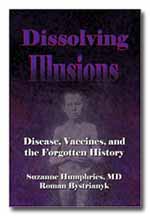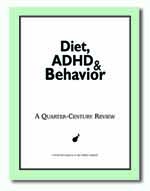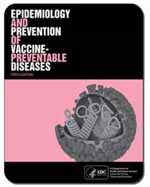 Back in December, 2020, before the vaccine rollout was well underway, Dr. J. Patrick Whelan of UCLA sent a warning to the FDA (see it below). They duly posted it at their website, but otherwise appear to have ignored it.
Back in December, 2020, before the vaccine rollout was well underway, Dr. J. Patrick Whelan of UCLA sent a warning to the FDA (see it below). They duly posted it at their website, but otherwise appear to have ignored it.
Whelan explained that people who recover from COVID-19 even with mild symptoms may have ongoing problems with myocardial (heart) inflammation. This ongoing problem is not related to the virus or even the illness, but to the spike protein ON the virus, which can bind to ACE-2 receptors in the heart, as well as in the brain and other organs such as the liver and kidney, and continue to cause health problems via microvascular injury (injury to the smallest vessels).
 He pointed to research showing that the SPIKE — yes, the actual spike protein of Covid-19 used in the vaccine — is what is causing this problem. Thus, by injecting this SPIKE protein via the vaccine, we may be creating a whole range of ongoing problems in the population — problems not being considered in the safety studies of any of the vaccines. As he is a pediatrician, he is particularly concerned about vaccinating the pediatric population without doing this research. He suggested that if the vaccine could be modified to use a partial spike protein, it might be less harmful, based on mouse experiments.
He pointed to research showing that the SPIKE — yes, the actual spike protein of Covid-19 used in the vaccine — is what is causing this problem. Thus, by injecting this SPIKE protein via the vaccine, we may be creating a whole range of ongoing problems in the population — problems not being considered in the safety studies of any of the vaccines. As he is a pediatrician, he is particularly concerned about vaccinating the pediatric population without doing this research. He suggested that if the vaccine could be modified to use a partial spike protein, it might be less harmful, based on mouse experiments.
QUOTE: “it appears that the viral spike protein that is the target of the major SARS-CoV-2 vaccines is also one of the key agents causing the damage to distant organs that may include the brain, heart, lung, and kidney.”
In his comment (below), he linked to the abstracts of the various studies, but below are the full texts in case you need them:
- Puntmann et al (2020): Outcomes of cardiovascular magnetic resonance imaging in patients recently recovered from coronavirus disease 2019 (COVID-10)
- Magro et al (2020): Docked severe acute respiratory syndrome coronavirus 2 proteins within the cutaneous and subcutaneous microvasculature and their role in the pathogenesis of severe coronavirus disease 2019
- Magro et al (2020): Severe COVID-19: A multifaceted viral vasculopathy syndrome
- Meinhardt et al (2020): Olfactory transmucosal SARS-CoV-2 invasion as a port of central nervous system entry in individuals with COVID-19
Below is the full text that he sent to the FDA:
Comment from J. Patrick Whelan MD PhD
Posted by the Food and Drug Administration
on Dec 9, 2020
Dear Colleagues,
I am a pediatric specialist caring for children with the multisystem inflammatory syndrome (MIS-C). I am concerned about the possibility that the new vaccines aimed at creating immunity against the SARS-CoV-2 spike protein (including the mRNA vaccines of Moderna and Pfizer) have the potential to cause microvascular injury to the brain, heart, liver, and kidneys in a way that is not currently being assessed in safety trials of these potential drugs.
Puntmann et al. (JAMA Cardiol. 2020;5:1265-1273) showed that the prospective study of 100 German patients who were recently recovered from COVID-19 revealed significant cardiac involvement on cardiac MRI scans in 78% of them, an average 2-1/2 months after their recovery from the acute illness. Two-thirds of these patients were never hospitalized, and there was ongoing myocardial inflammation in 60%. The abnormalities occurred independent of preexisting conditions, severity of the initial disease, and overall course of the acute illness.
Magro et al. showed that there is complement-mediated damage even in grossly normal skin of coronavirus-infected individuals (Human Pathology 2020:106:106-116). They have also shown (Magro et al. Annals of Diagnostic Pathology 2021:50 in press ) that ACE-2 receptor expression is highest in the microvasculature of the brain and subcutaneous fat, and to a lesser degree in the liver, kidney, and heart. They have further demonstrated that the coronavirus replicates almost exclusively in the septal capillary endothelial cells of the lungs and the nasopharynx, and that viral lysis and immune destruction of those cells releases viral capsid proteins (or pseudovirions) that travel through the circulation and bind to ACE2 receptors in these other parts of the body – leading to mannan-binding lectin complement pathway activation that not only damages the microvascular endothelium but also induces the production of many pro-inflammatory cytokines. Meinhardt et al. (Nature Neuroscience 2020, in press) show that the spike protein in brain endothelial cells is associated with formation of microthrombi (clots), and like Magro et al. do not find viral RNA in brain endothelium. In other words, viral proteins appear to cause tissue damage without actively replicating virus.
Is it possible the spike protein itself causes the tissue damage associated with Covid-19? Nuovo et al (in press) have shown that in 13/13 brains from patients with fatal COVID-19, pseudovirions (spike, envelope, and membrane proteins) without viral RNA are present in the endothelia of cerebral microvessels. Furthermore, tail vein injection of the full length S1 spike subunit in mice led to neurologic signs (increased thirst, stressed behavior) not evident in those injected with the S2 subunit. The S1 subunit localizes to the endothelia of microvessels in the mouse brain, and is a potent neurotoxin. So the spike S1 subunit of SARS-CoV-2 alone is capable of being endocytosed by ACE2 positive endothelia in both human and mouse brain, with a concomitant pauci-cellular microencephalitis that may be the basis for the neurologic complications of COVID-19. The Pfizer/BioNTech vaccine (BNT162b2) is composed of an mRNA that produces a membrane-anchored full-length spike protein. The mouse studies suggest that an untruncated form of the S1 protein like this may cause a microvasculopathy in tissues that express much ACE2 receptor. A truncated form of S1 was much less damaging in mice.
While there are pieces to this puzzle that have yet to be worked out, it appears that the viral spike protein that is the target of the major SARS-CoV-2 vaccines is also one of the key agents causing the damage to distant organs that may include the brain, heart, lung, and kidney. Before any of these vaccines are approved for widespread use in humans, it is important to assess in vaccinated subjects the effects of vaccination on the heart (perhaps using cardiac MRI, as Puntmann et al. did). Vaccinated patients could also be tested for distant tissue damage in deltoid area skin biopsies, as employed by Magro et al. As important as it is to quickly arrest the spread of the virus by immunizing the population, it would be vastly worse if hundreds of millions of people were to suffer long-lasting or even permanent damage to their brain or heart microvasculature as a result of failing to appreciate in the short-term an unintended effect of full-length spike protein-based vaccines on these other organs.
In caring for children with MIS-C, I have been impressed with how widespread the organ involvement is, particularly given the absence of actively replicating virus in virtually all patients. Particular caution will be required with regard to the potential widespread vaccination of children before there are any real data on the safety or effectiveness of these vaccines in pediatric trials that are only now beginning.
Patrick Whelan MD PhD
UCLA Pediatric Rheumatology
Los Angeles CA 90095





















Pingback: Healthy 27-Year-Old Woman’s Heart Damaged By Pfizer Jab; “Heart Of An 80-Year-Old” Says Doctor – Takin' It Back
I would like to know if the request to further studies completed??
what studies are you talking about?
Dr Whelan,
Did you get any response from the FDA regarding your concerns with these experimental gene therapies?
I have been following closely the work of Dr Carrie Madej, Dr Sherri Tenpenny, Dr Lee Merritt and others who are deeply concerned about the ability of these spike proteins causing serious long term injury as a result of these mass “vaccination” programs. As you know, these injections neither provide immunity from Covid, nor do they prevent transmission. But, by calling them “vaccinations”, they are enabled to mandate them to everyone, and they can be shielded from all liability. This campaign breaks every single item of the Nuremberg Code for conducting medical experiments on people without their informed consent.